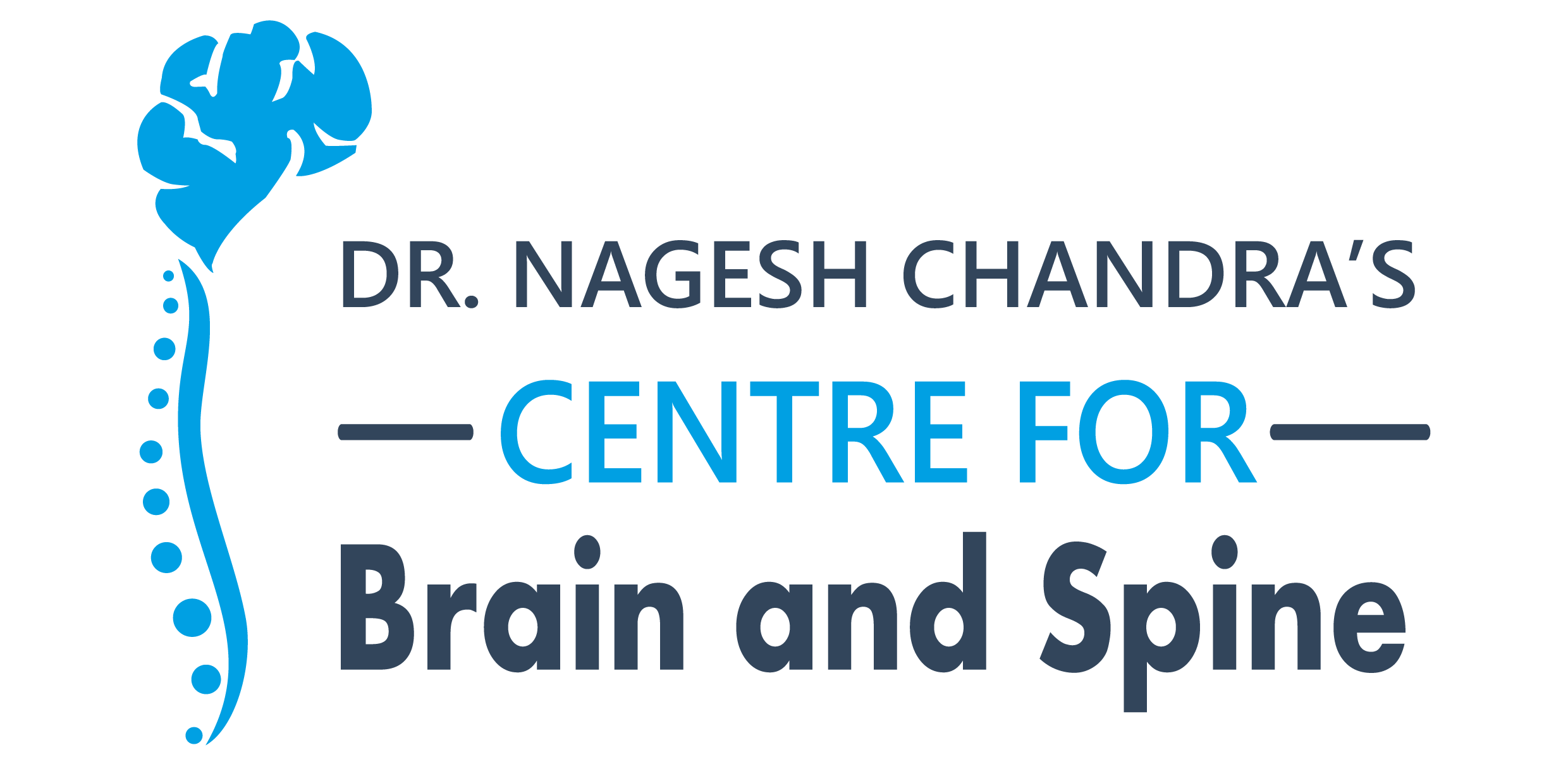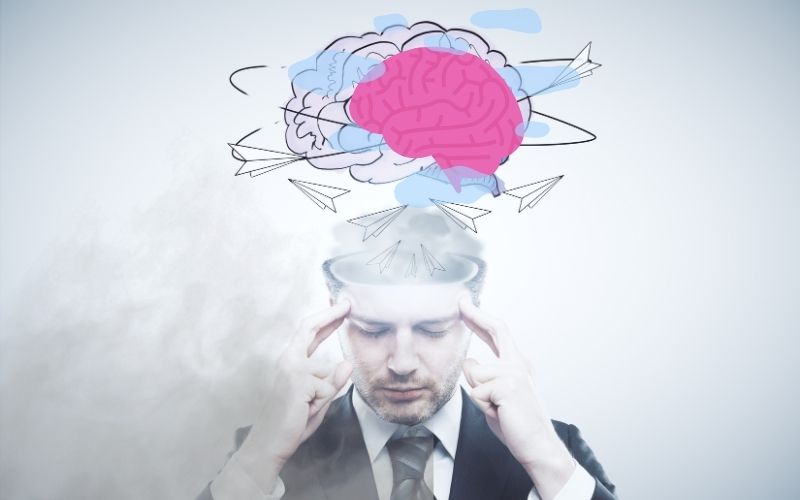Brain fog is not a disease, but a cluster of symptoms that affect thinking, memory and focus. People often describe it as a mental cloud a feeling of being unable to concentrate, or having a “fuzzy head.” Though the term sounds casual its impact can disrupt work, daily routines and even relationships. In Hindi brain fog meaning in Hindi can be understood as “मस्तिष्क का धुंधलापन,” which highlights this mental haze that makes decision-making hard
Brain fog is not just a result of tiredness. It is linked to poor sleep, mental fatigue, hormonal imbalance, stress and certain medications. It is important to know that brain fog can be reversed with the right steps and medical support
Early Signs and Symptoms of Brain Fog
Common symptoms include forgetfulness difficulty in concentrating, confusion and slow thinking. Many people say they feel as if they are “not themselves” or that their brain is “running on low power.”
If these signs last more than a few days and affect daily work or personal life, it is essential to seek medical help. Ignoring these early symptoms may delay treatment and cause the condition to worsen.
Top Reasons for Brain Fog in Daily Life
There are several reasons for brain fog. Here are the top causes:
- Lack of Quality Sleep: Sleep is when your brain rests and repairs itself. Poor sleep or irregular sleep patterns affect mental clarity.
- Stress and Anxiety: Constant stress increases cortisol levels. This hormone, when high for long, can damage brain cells and reduce focus.
- Poor Diet: Deficiency in vitamins like B12, iron, and Omega-3 fatty acids affects cognitive health. A high-sugar, high-processed food diet worsens the problem.
- Medical Conditions: Thyroid disorders, autoimmune diseases, and chronic fatigue syndrome are common brain fog causes. In such cases, fog is a symptom and not the core issue.
- Neurological or Neurospine diseases like CFS Leak or Brain Edema
- Hormonal Changes: Women experience foggy brain during pregnancy or menopause due to fluctuating hormone levels.
- Medications: Some drugs, especially sedatives and antidepressants, may interfere with memory and alertness.
- Digital Overload: Constant screen time leads to mental exhaustion. It’s a growing cause of attention problems and fatigue.
It also helps doctors understand whether it is lifestyle-related or due to an underlying condition.
How Brain Fog Affects Productivity and Quality of Life
Brain fog may sound like a minor issue, but it can deeply affect how one functions. Students struggle to learn or retain information. Professionals may find it hard to focus in meetings or complete tasks on time. Parents can feel overwhelmed with routine responsibilities. Emotional stress builds up, and that creates a loop, fog makes stress worse.
People with a foggy brain often describe losing confidence. When thoughts feel slow, or you can’t find the right word, it leads to frustration. Over time, this can even lead to mental health problems like anxiety and depression.
In more severe cases, brain fog can be linked with memory lapses that affect driving, financial decisions, or parenting. Understanding these impacts helps others around you become more supportive and patient.
How to Remove Brain Fog: Immediate Steps You Can Take
If you are wondering how to get rid of brain fog, the first step is to make small but steady changes. These methods help reduce symptoms quickly:
1. Improve Your Sleep Routine
Go to bed and wake up at the same time every day. Use blackout curtains. Avoid screens at least one hour before bedtime. A proper sleep cycle helps your brain clear toxins and reset.
2. Eat Brain-Boosting Foods
Include nuts, seeds, fish, and green vegetables in your meals. These give your brain the nutrients it needs. Reduce sugar, caffeine, and processed foods. Hydration also matters—dehydration is one of the top causes.
3. Practice Focus Exercises
Daily meditation, puzzles, and memory games keep your mind active. Even 10 minutes a day improves alertness. Try breathing exercises to calm your mind when you feel overwhelmed.
4. Physical Movement Matters
A short walk every morning improves blood flow to the brain. Movement helps produce feel-good hormones and clears mental blocks. Yoga and stretching reduce tension and improve posture, which also helps with clarity.
5. Keep a Journal
Writing helps release stored emotions. It clears mental space. Write down your to-do list the night before. It reduces morning confusion and helps you start the day with direction.
6. Reduce Digital Overload
Avoid checking emails first thing in the morning. Set “screen breaks” during the day. Too much screen time creates a constant input of data, which the brain struggles to process.
7. Check Your Medicines and Hormones
Talk to your doctor about side effects. Some medicines contribute to brain fog. A blood test can check your thyroid, vitamin levels, and hormonal balance. Based on results, the doctor will suggest the right supplements or changes.
Long-Term Brain Fog Treatment in Delhi: Aviailable Options
When short-term strategies don’t give relief, you must look at deeper causes and structured treatment. Effective brain fog treatment begins with an accurate diagnosis. In cities like Delhi, specialized clinics now offer tailored assessments to identify the root causes of fog.
Doctors may conduct a brain fog test in Delhi that includes blood work, cognitive assessments, mental health screening, and sleep studies. If your case relates to underlying neurological issues, then a referral to a neurosurgery specialist in Delhi or a neurosurgeon in Delhi may follow.
These treatments aim to:
- Restore brain chemistry balance
- Treat hormonal or nutritional deficiencies
- Support mental health recovery
- Monitor lifestyle patterns to track progress
A structured plan may include nutritional therapy, physical activity routines, therapy for stress management, and guidance for maintaining cognitive health.
Neuroplasticity: How Your Brain Can Heal Itself
One of the most encouraging discoveries in brain science is that the brain can rebuild itself. This process is called neuroplasticity. It means you can form new brain pathways by practicing healthy habits.
Daily engagement in learning, music, memory games, and emotional regulation boosts brain function. Sleep supports this rebuilding process. That’s why deep rest and stress relief play major roles in recovery.
Brain exercises, mental rest periods, and avoiding multitasking can reset overloaded brain circuits. These methods teach the brain how to work efficiently again.
Common Myths About foggy Brain
There are many wrong ideas about fog. Clearing these myths helps people approach recovery with better clarity.
Myth 1: Brain fog is always due to ageing
Truth: Young adults, teens, and even children may face brain fog due to stress, digital distractions, or lack of sleep.
Myth 2: Brain fog is permanent
Truth: Brain fog is reversible in most cases. Identifying the cause and following a structured recovery path is key.
Myth 3: It only affects memory
Truth: It also affects focus, decision-making, speech clarity, emotional control, and even physical energy.
How to Cure Brain Fog with Medical Help
If you want to know how to cure brain fog, it starts with visiting a qualified medical professional. In Delhi, clinics like the Center for Brain and Spine Clinic in Delhi provide multi-disciplinary care. They evaluate neurological, psychological, and nutritional dimensions.
This team approach ensures that each aspect of your health contributes to brain clarity. If needed, advanced scans like EEG or MRI are used to rule out neurological disorders.
Some clinics also offer brain-mapping sessions to track improvement in focus, processing speed, and emotional response.
Mental Health Support and Brain Fog Recovery
Brain fog often overlaps with depression, anxiety, or burnout. Therapy plays a central role in identifying emotional causes. Cognitive-behavioural therapy (CBT) helps you reorganize your thoughts and develop a healthy routine.
Guided therapy sessions help manage anxiety, unresolved grief, or emotional trauma. These emotional factors often go unnoticed and can silently cloud the brain.
Practicing gratitude journaling, breathwork, and setting healthy boundaries reduces the emotional load that triggers fog.
Brain Fog and Nutrition: The Gut Connection
New research shows how the gut affects brain health. This connection is called the gut-brain axis. When gut bacteria become imbalanced, they release chemicals that reach the brain and affect mood, focus, and clarity.
People with gut issues like bloating, IBS, or food intolerances often report brain issues. A diet rich in fiber, probiotics, and fermented foods helps reset this connection. A nutritionist can guide you through an elimination diet to identify hidden food triggers.
Brain fog can also come from blood sugar spikes caused by refined carbs. Shifting to whole foods and balanced meals prevents these crashes. It is frustrating but not permanent. With lifestyle correction, medical guidance, and mental health support, you can regain your mental clarity.
If you are searching for brain fog treatment in Delhi, the Center for Brain and Spine offers expert-led care. They provide diagnosis, treatment, and recovery planning under one roof.
By combining brain science with emotional health, they help you reset your focus, energy, and productivity.
Frequently Asked Questions (FAQs)
It is a state of reduced mental clarity, focus, and memory that makes thinking difficult.
Sleep deprivation, stress, poor diet, hormone imbalance, and medical conditions are common causes.
Yes, if the root cause is addressed and a proper treatment plan is followed.
Neurologists, neurosurgery specialists, and brain-health specialists at the Center for Brain and Spine in Delhi offer treatment.
Yes, chronic anxiety or depression can cause or worsen brain fog symptoms.

